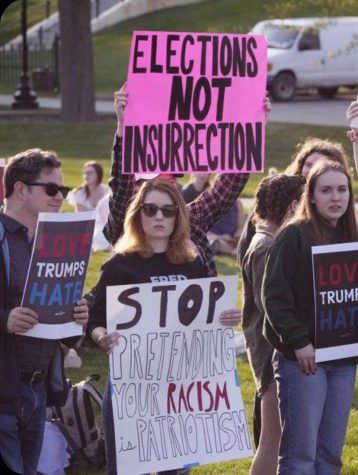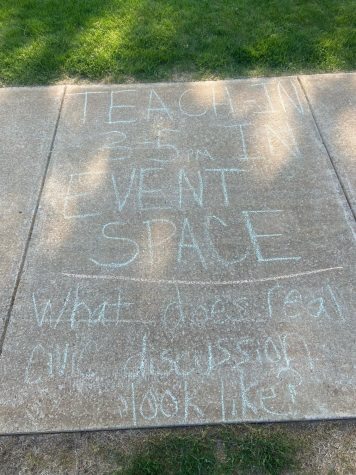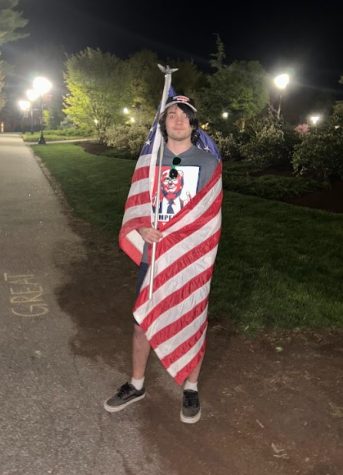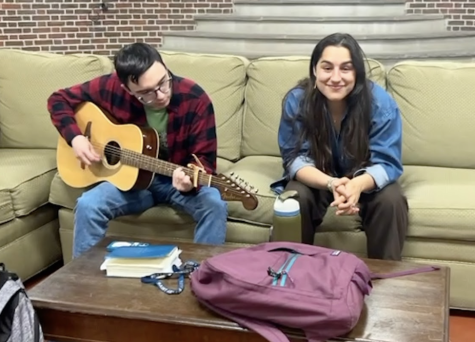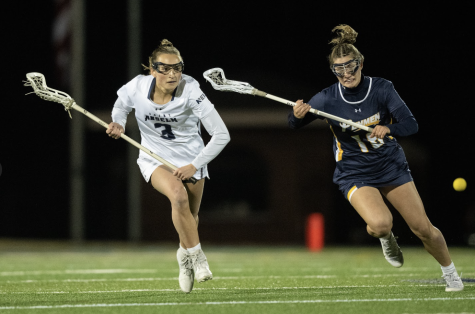The Triduum of the Dead In Hindsight: You’re All Gonna Die!
November 3, 2022
I am writing this the night before Halloween, but when you read this, you will be in a month on the Catholic calendar that is dedicated to praying for the souls in purgatory. I unfortunately was unable to write for the last issue due to personal reasons, but I think this theme is still highly relevant. As a society, we have learned not to think long-term on a lot of things. We love the instant rush of having our social media posts liked at the snap of a finger, and when responses to our posts are too slow, we get anxious. We only like to think about the present time, or at best, what is happening tomorrow.
A professor once mentioned that the purpose of Conversatio at Saint Anselm College is to teach us to live a life that bolsters not just our resume but our eulogy as well. I agree with this professor, because one thing that is inevitably going to happen to all of us is death. We should live our lives in such a way that we consider our mortal death not out of despair, but out of respect for ourselves and those we love.
Why was Halloween so gothic in nature last month, why the past years, and why will it continue to be? The first thing to understand is that Halloween is officially the Vigil of All Saints. The older term for All Saints’ Day is the Feast of All Hallows (meaning all hallowed persons), making the older name for Halloween All Hallows’ Eve. All Saints’ Day honors the Catholics who have pleased God throughout the ages and are united with Him in heaven. When All Saints’ Day became a holiday, the canon of saints was largely filled with Christians who were brutally martyred. This, I would argue, contributes slightly to the festival we celebrated last month. The second thing to understand is that the United States inherited a plethora of traditions from other cultures. We inherited dressing up along with the theme of death from the French Catholics, who liked to dress up around this time to acknowledge our mortality as humans and even to make light of it. For them, this was the “dance of the macabre”. We can see this tendency in New Orleans in the present day. The supernatural element comes from Irish Catholics, many of whom had believed that if they did not acknowledge damned souls in hell, they would cause mayhem on the night before the celebration of the souls in heaven. This has never been officially recognized by the Church, nor do I recognize it myself. What I do agree with is that we should have a healthy desire to not suffer the same fate as the damned.
Halloween is behind us, but November is the month of remembering the souls in Purgatory. At the luminaria Mass held at Saint Anselm Abbey each year on the first Sunday of November, we remember and intercede for the many loved ones that have died, praying that they be given the eternal bliss of heaven that they hopefully aspired to in this life. Too often, we act like a day is worth a dime, pleasuring ourselves however we wish. We might understand that no one lives forever, but we act as if we will, sometimes with the motivation to treasure our short lives.
If you believe in the afterlife, you should be willing to take the time to remember that you will die someday, trying to love life, the God who gave it to you, and living to the best of your ability. We should also love the dead who are in purgatory, and we should pray for them, especially because we may be in their position one day, needing the prayers of the Church Militant to pass from the Church Suffering to the Church Triumphant. Remember your mortal death that is to come each day, with hope to live a happy eternity. These are the actions of a good person, a good student, and one with a good soul.






